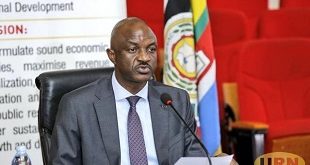
‘Raila fatigue’ favours status quo in Kenya election
Kenya | YVONNE ROWA WOODS | Kenya’s 2017 polls will be remembered as the election of minor gains and confounding contradictions.
In the run up to polling, public discontent appeared to have been largely driven by the unprecedented sophistication in graft and tribalism in the President Uhuru Kenyatta’s government.
But both Kenyatta and opposition candidate Raila Odinga demonstrated a weak commitment to tackling corruption. Raila’s family was involved in a KShs2 billion maize scandal when he was Prime minister in the government of former President Mwai Kibaki, according to U.S. Wikileaks cables released in 2011, and he attempted to suspend then Agriculture Minister William Ruto to divert attention from the scandal. Details of Raila’s alleged involvement were made by then U.S. Ambassador to Kenya, Michael Ranneberger, to Washington. In fact, neither of them articulated a bold agenda to roll back graft.
Raila ran on a six-point National Super Alliance (NASA) manifesto that espoused `progressive values’ of democracy, rule of law, affirmative action, freedom of the media, transparency and public participation.
This election was the grand finale of a dynastic struggle between the Odinga and Kenyatta families. Uhuru Kenyatta and Odinga are both members of two of Kenya’s main political dynasties who have fought for power in the decades since the East African country became independent from British colonisers.
Kenyatta is the third son of Jomo Kenyatta, who was the first president of an independent Kenya in 1964. Raila’s father, Oginga Odinga was his deputy. He gained prominence for recruiting members of his Luo ethnic group to the independence struggle but soon found that his agenda clashed with that of Kenyatta who favored a centrist approach and close ties with the West. Odinga held socialist views and wanted better relations with Russia and China. Odinga broke away and formed the left-wing Kenya People’s Union in 1966, which was subsequently banned in 1969 by Kenyatta, who also placed his former deputy in government detention. Thus began the Odinga dynasty’s decades in the political shadows.
Both Uhuru and Raila will not run in the next election.
In their final contest both boldly manipulated the ethnic formula while their supporters once again demonstrated a stubborn fixation with traditional voting patterns. This is reflected in the results from the presidential candidates’ ethnic strongholds.
Despite these failings, the Kenyan people handed Kenyatta a comfortable second term. Kenyatta garnered 54.27% of the final vote. Odinga received 44.74%.
On top of this, some of the blunders and disturbing trends witnessed in previous elections were repeated. These included social media hate speech, a high-profile murder, poor communication from the electoral commission when it came to relaying results, inadequate voter education, and inflammatory statements by leading figures when provisional election results were released.
 The Independent Uganda: You get the Truth we Pay the Price
The Independent Uganda: You get the Truth we Pay the Price



